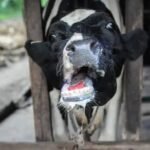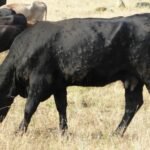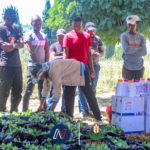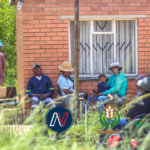By: Patrice Talla Takoukam – FAO Sub-regional Coordinator for Southern Africa and FAO Representative for Eswatini, Lesotho and Zimbabwe
This month brought a rare but welcome headline in global food security: Lesotho is no longer on the list of global hunger hotspots.
According to the latest Hunger Hotspots 2025 report by the Food and Agriculture Organization (FAO) and the World Food Programme (WFP), Lesotho—alongside Malawi, Mozambique, Namibia, Zambia, and Zimbabwe—has been removed from the list of countries facing the most severe levels of food insecurity thanks to notable improvements in food security. It is a significant moment for the country, one that deserves recognition. But more importantly, it demands reflection and renewed resolve.
The report attributes this achievement to a combination of favourable climatic conditions and coordinated interventions that have borne fruit. For Lesotho, this is not just a technical adjustment on a global chart. This is a momentous achievement for Lesotho and the SADC region and a testament to the hard work and dedication of the Government of Lesotho, partner organizations and communities.
We should take pride in this progress. But we must also acknowledge a difficult truth: food security in Lesotho remains fragile. A shift in weather patterns, a poor harvest, or a regional economic shock could easily reverse the gains we have made.
Years of droughts, floods, and economic hardship have pushed thousands of Basotho households into chronic food insecurity. That context has not disappeared overnight. What has changed is our ability to respond more effectively—with tools like climate-smart agriculture, better seed and fertilizer distribution, and stronger coordination across sectors.
FAO and its partners have played a key role in this progress, helping to build resilience for smallholder farmers—who form the backbone of the food system—through improved access to resources and knowledge. Irrigation systems have been rehabilitated. Climate-smart practices are slowly taking root. We are seeing what is possible when evidence-based policies meet community-driven solutions.
Still, this is no time for complacency. Being delisted from a hunger hotspot report does not mean hunger has been defeated. It means we’re heading in the right direction—but the journey continues. We must keep investing in sustainable agriculture, building climate resilience, and strengthening social protection programmes so that no one is left behind. FAO remains committed to providing technical assistance, capacity building, and policy support to ensure long-term food security and sustainable development in Lesotho and across the African region.
The road ahead is long. But today, Lesotho is in a stronger position. Let us build on this momentum to ensure that every family in Lesotho can count on the food they need—not just today, but for generations to come.






